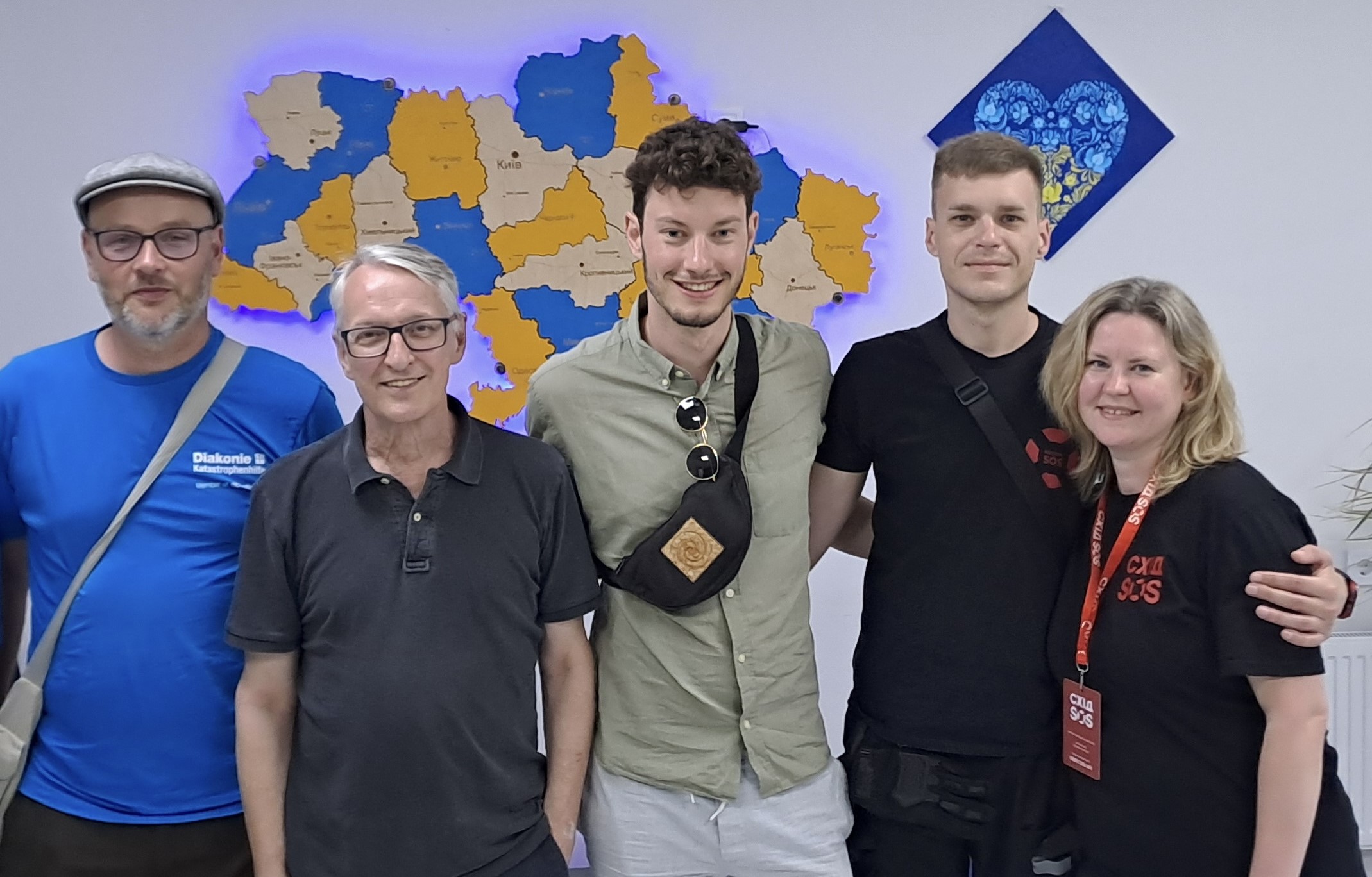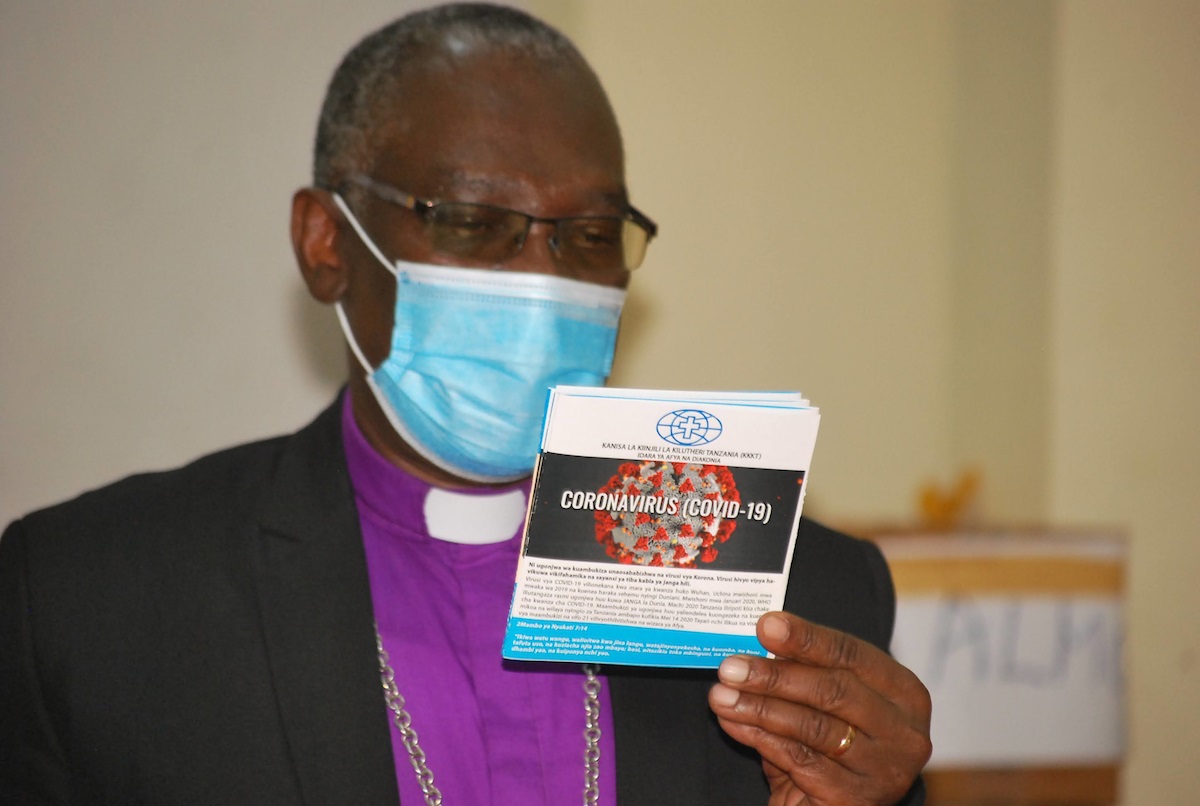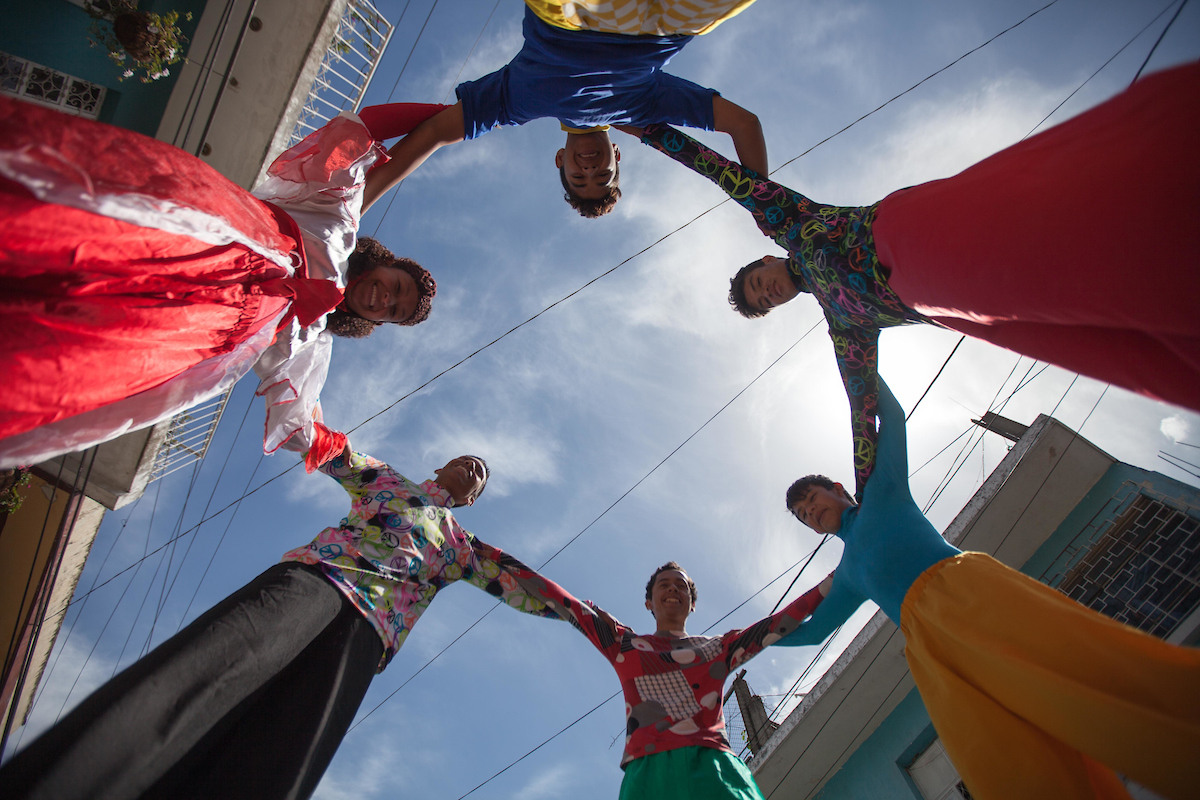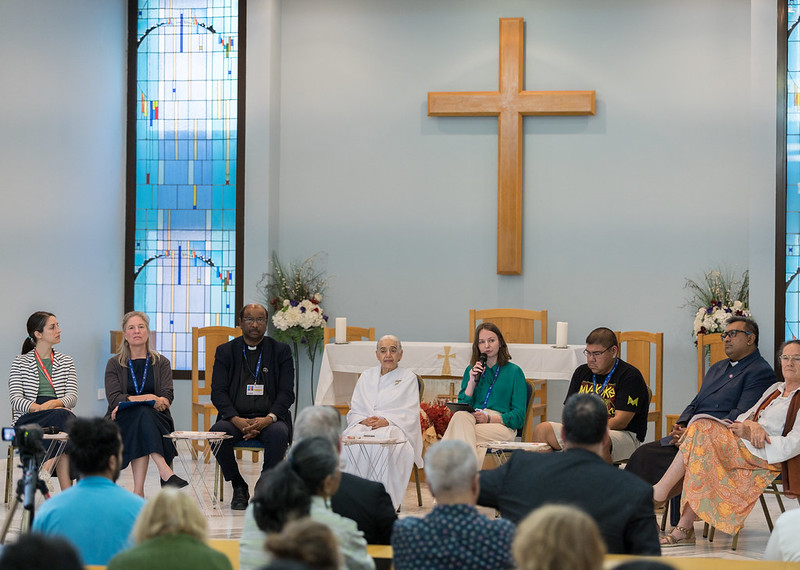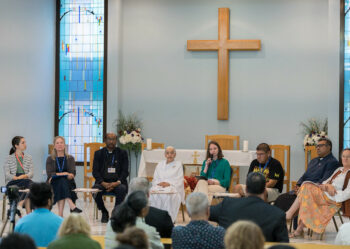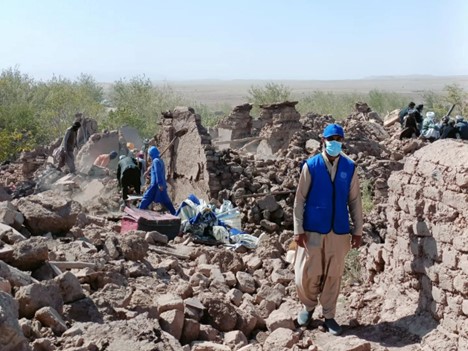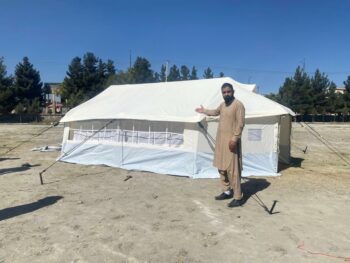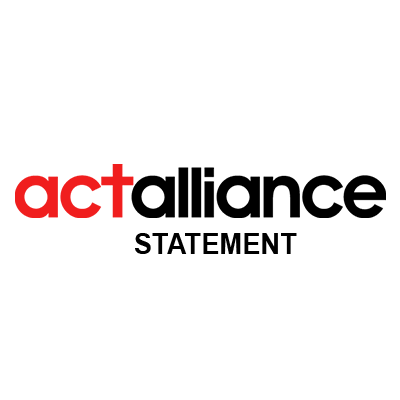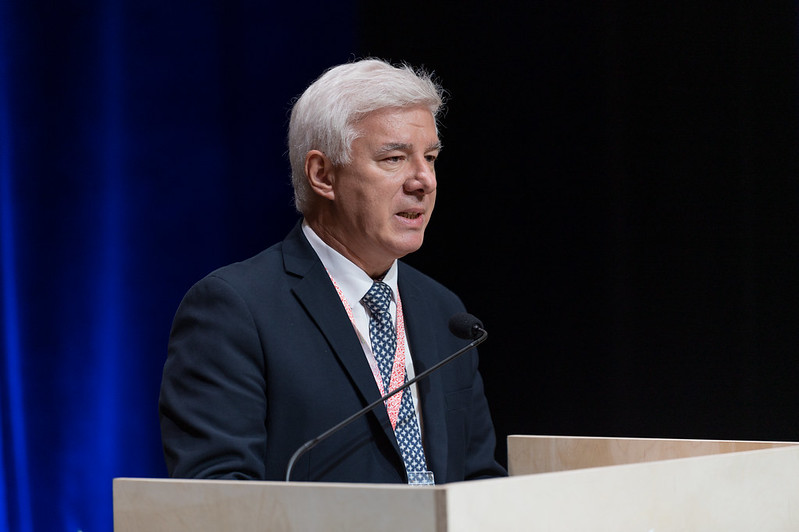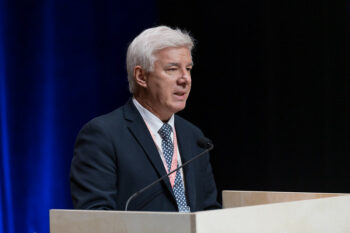At the beginning of July, Andrij Waskowycz assumed the role of convener of the ACT Alliance Ukraine Forum, which unites 13 member organizations providing humanitarian aid in Ukraine. Andrij, who has been in Ukraine since 1991, brings a wealth of experience to his new role. This interview delves into his perspectives on recent events, the Forum’s priorities, and his outlook on humanitarian aid and the recovery process in Ukraine.
Q: Andrij, you’ve recently taken on the role of convener of the ACT Alliance Ukraine Forum. Can you tell us about your background and what led you to this function?
Andrij Waskowycz: Since Ukraine’s independence in 1991, I have made the country my home, residing in Kyiv for the past 33 years. Born in Munich to Ukrainian parents, my roots naturally drew me to Ukraine. I have been involved with humanitarian organizations since 2001, and in June 2023, I assumed the role of Head of Mission for Diakonie Katastrophenhilfe in Ukraine. Mark Mullan, the previous convener of the ACT Alliance Ukraine Forum, invited me to take on this role. I accepted because I believe the Forum is a vital platform for member organizations to exchange ideas and collaborate.
Q: Just days after you took over as convener, Kyiv experienced a devastating missile attack. Can you describe that day and its impact on the city?
Andrij Waskowycz: On July 8th, Kyiv endured one of the most tragic days since the full-scale invasion, as a missile attack struck the Okhmatdyt Children’s Hospital, another hospital, and several apartment buildings. Thirty-three people, including many children, lost their lives, and over 100 were injured that day. The Okhmatdyt Hospital, known for treating children with cardiac diseases and cancer, was severely damaged. The shock and devastation were immense, with people rushing to offer assistance. Even our office felt the tension; we heard the air sirens and explosions, knowing this attack was different and more destructive.
Q: How do such events affect the daily lives of people in Kyiv and the humanitarian efforts of your organization?
Andrij Waskowycz: The constant threat of missile attacks creates a pervasive sense of tension. People try to lead normal lives, but war is always present in their subconscious. For humanitarian organizations, these attacks also pose significant challenges, putting sometimes the lives of aid workers at risk. They underscore the urgency of our work and the need for coordination and preparedness.¨
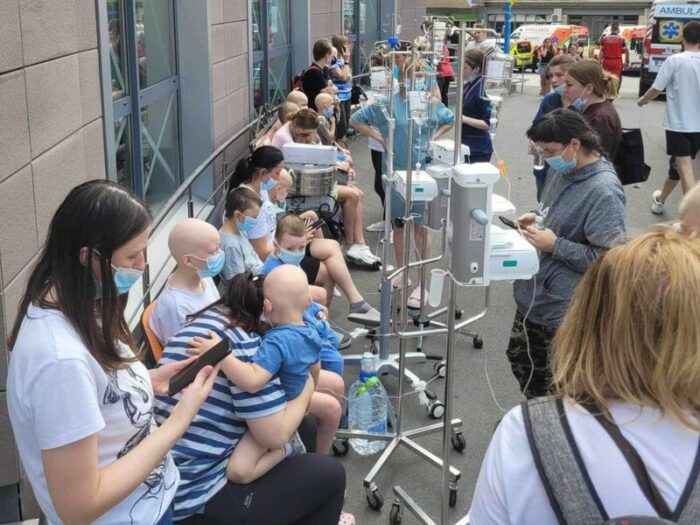
Q: What do you consider to be the main priorities for the ACT Alliance Ukraine Forum?
Andrij Waskowycz: Our primary focus is enhancing cooperation, coordination, and exchange among member organizations. We’re working on joint advocacy efforts, such as ensuring humanitarian workers can be exempted from military enlistment to prevent the loss of qualified personnel. Additionally, we’re exploring ways to foster closer collaboration through the establishment of different Working Groups, for example in the field of HSS (Health Security and Safety), which are of common interest to all our member organizations. We are also considering establishing a Working Group on Mental Health and Psycho-Social Assistance. Many Forum members are active in this field, and a broader exchange of ideas regarding support for people with mental health issues could benefit various projects. Mental health is a significant issue in Ukrainian society, with estimates indicating that over ten million people in Ukraine need psycho-social assistance due to trauma from shelling, violence, and loss.
Q: You recently attended the Ukraine Recovery Conference in Berlin. What were the key takeaways from this event?
Andrij Waskowycz: The conference was highly significant, bringing together over 3,500 participants, including many from civil society for the first time. It served as a crucial platform for networking, discussing Ukraine’s recovery, and forming new partnerships. The presence of high-ranking politicians and the discussions on funding and rebuilding efforts underscored the international community’s commitment. The conference emphasized the need for immediate recovery actions to restore hope and normalcy for those living in devastated areas.
However, I believe that civil society representatives should have been more involved in the official program of the Conference. Civil society plays a crucial role in Ukraine’s reconstruction, especially given the declared focus on the „human dimension“. Reconstruction must extend beyond restoring material infrastructure to include renewing the social fabric, with appropriate social protection systems and effective social services. Much advocacy is still needed to ensure that the “human dimension” and the role of civil society in Ukraine’s reconstruction process receive the attention they deserve, particularly concerning the follow-up Ukraine Recovery Conference to be held in Italy next year.
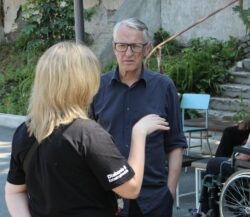
Q: How important is the role of local organizations in your work, and what lessons can other countries learn from Ukraine’s experience?
Andrij Waskowycz: Local organizations are crucial because they understand the needs of their communities intimately. Ukraine has a very vibrant civil society and therefore very strong local organizations in the humanitarian sphere. Other countries can learn the value of empowering local organizations. These organizations often start from volunteer initiatives, responding quickly to crises, and as they grow, they must balance maintaining their agility with meeting donor requirements. “Localization” is a very important topic in the context of the humanitarian crisis in Ukraine. The ACT Alliance Ukraine Forum could be a good platform to advance the debate around “Localization” within the civil society and the international humanitarian community in Ukraine.
Q: What are the main challenges faced by humanitarian organizations in Ukraine, and how should they address these challenges to improve their effectiveness?
Andrij Waskowycz: The humanitarian crisis in Ukraine has seen a troubling trend where the funding for aid is decreasing even as the demand for assistance continues to rise. The decrease in funding can be attributed to donor fatigue, economic pressures on donor countries, and shifting global priorities. Simultaneously, the demand for aid is rising due to the ongoing war, displacement, and deteriorating living conditions. To address this situation, humanitarian organizations need to diversify their funding sources, increase advocacy efforts to highlight the urgency of the humanitarian crisis, and collaborate more closely with local partners to maximize the efficiency and impact of available resources. These challenges and topics concern all members of the ACT Alliance Ukraine Forum, and it is therefore their joint responsibility to discuss these topics and find proper solutions to these difficult questions. To initiate and facilitate such a discussion among the members is also a task for the convener of the ACT Alliance Ukraine Forum.

